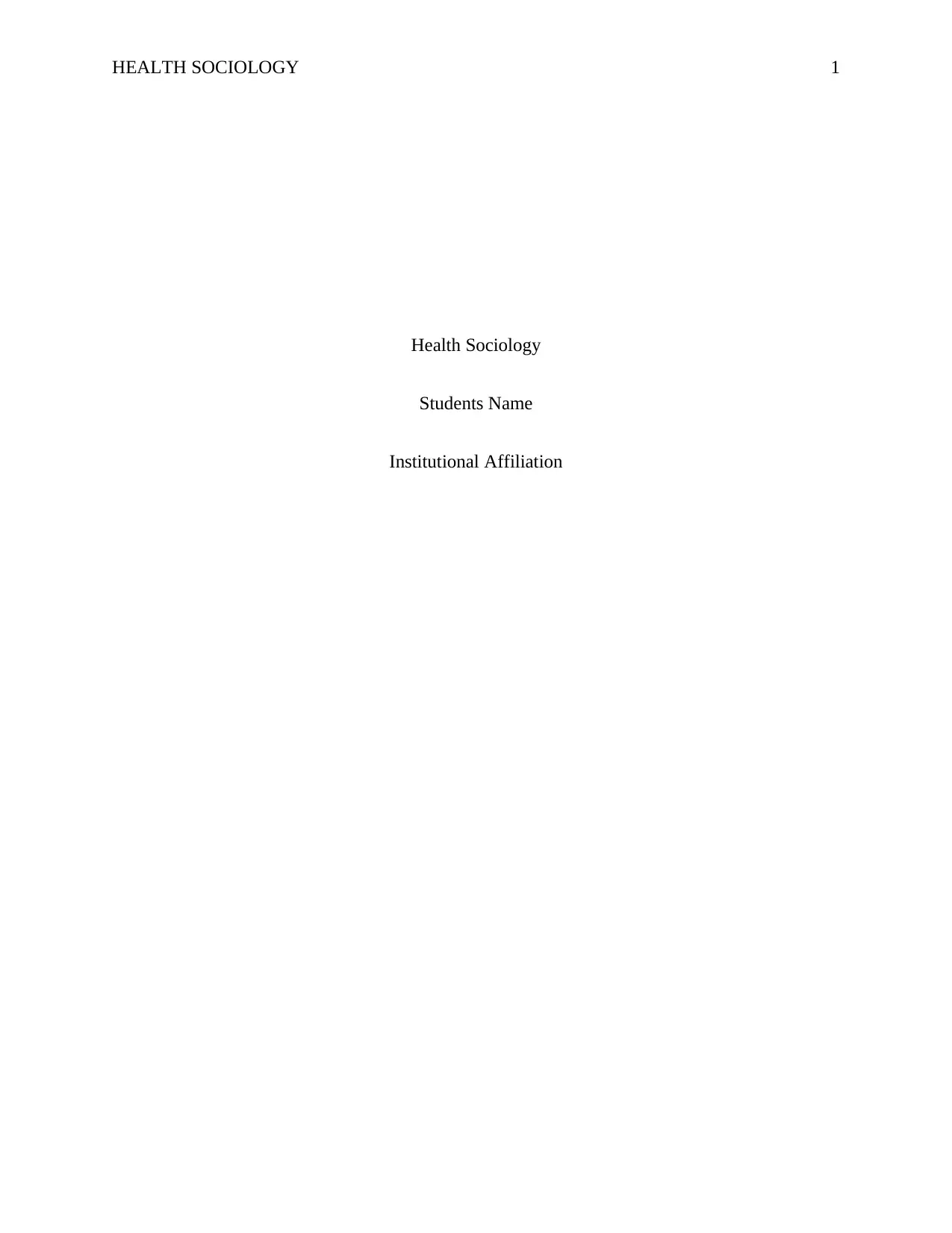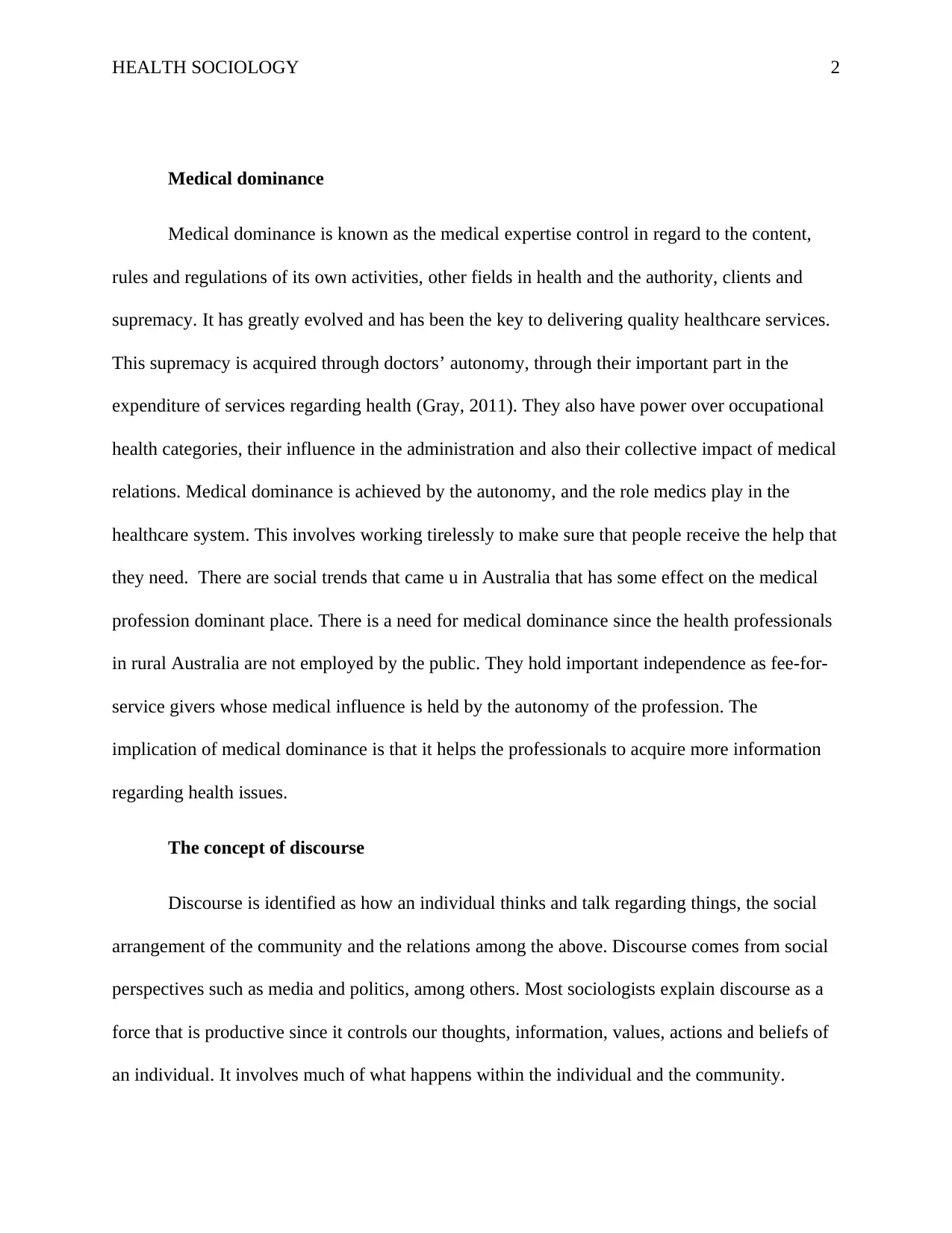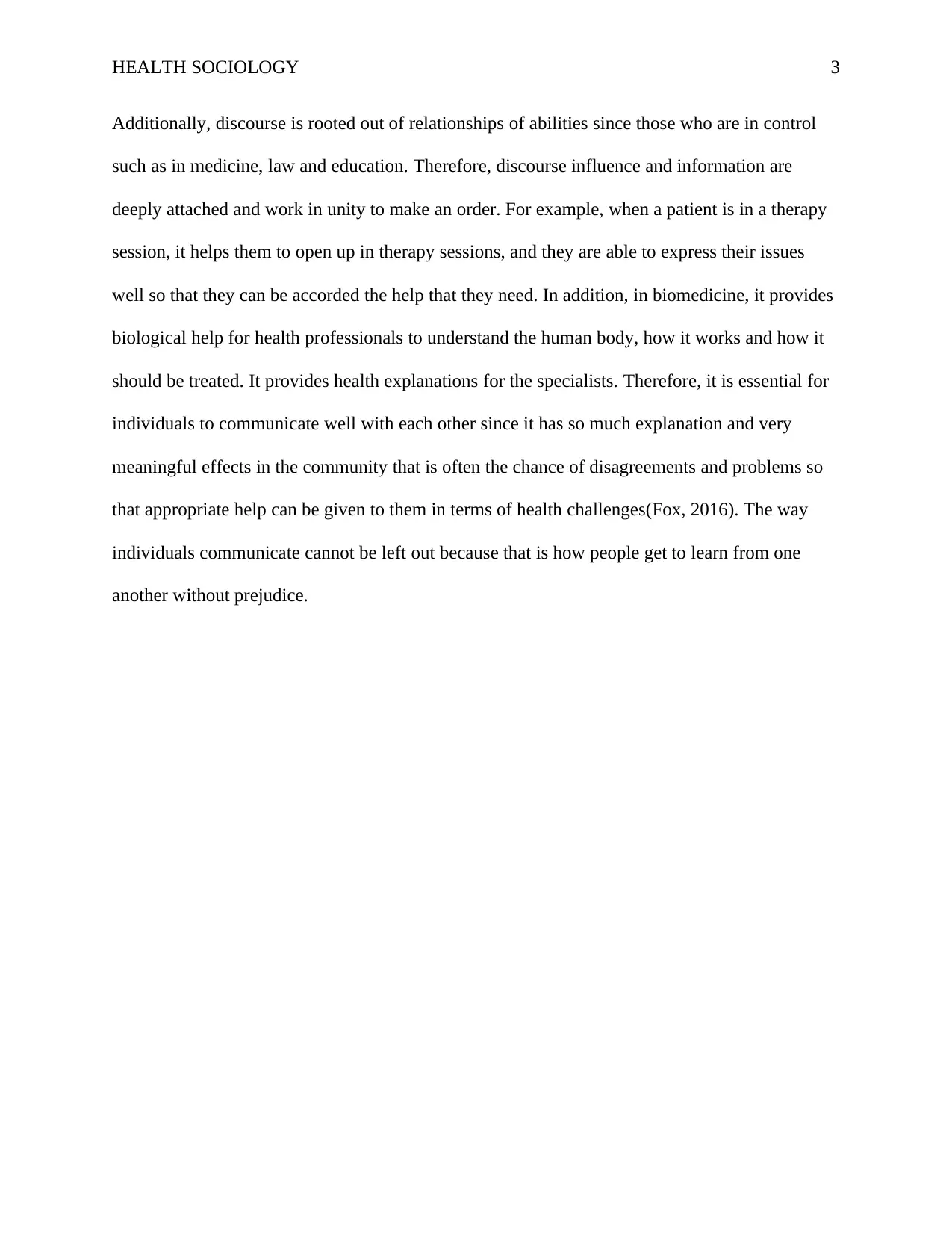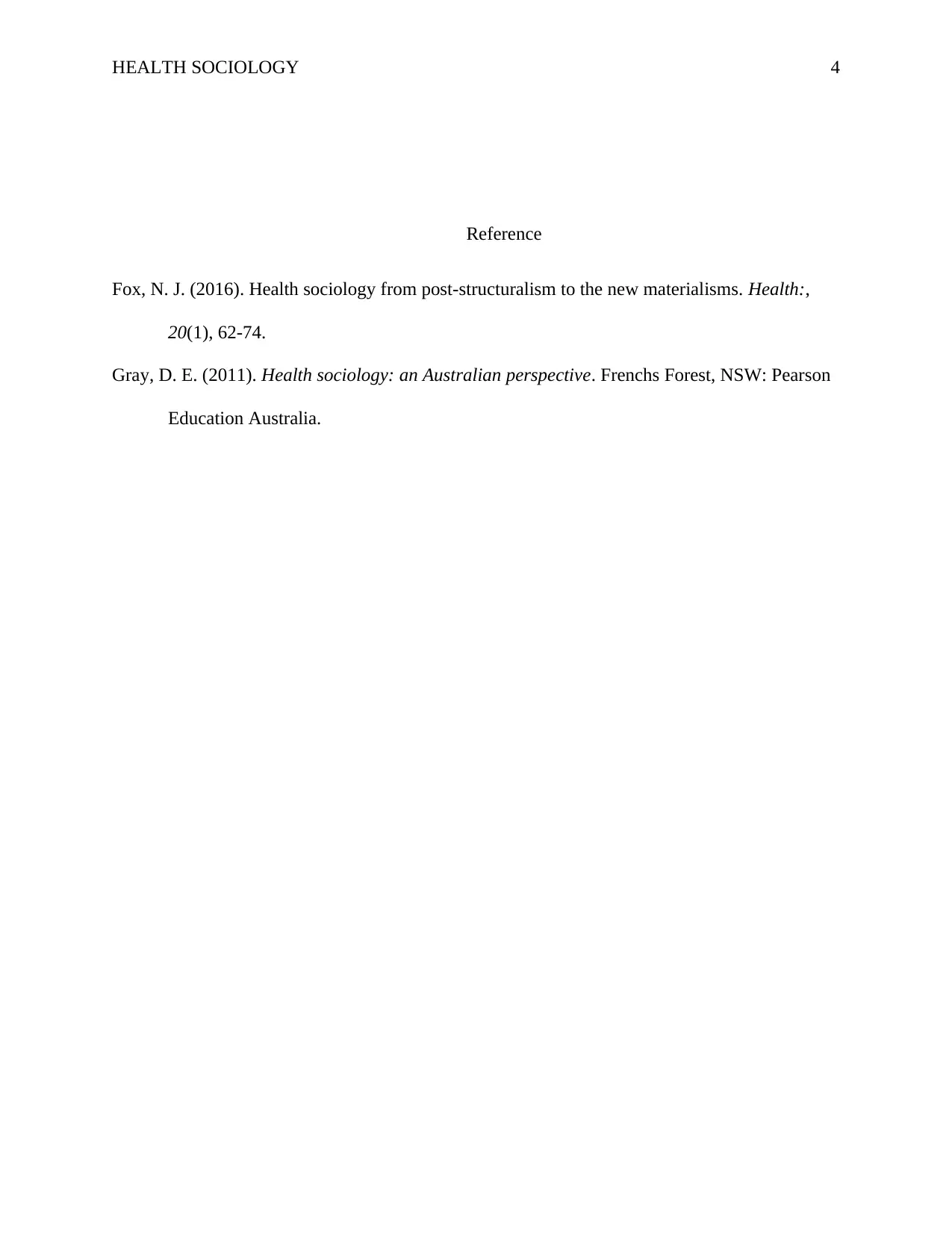Medical Dominance and Discourse: A Health Sociology Perspective Report
VerifiedAdded on 2022/11/01
|4
|561
|263
Report
AI Summary
This report delves into the concepts of medical dominance and discourse within the realm of health sociology. Medical dominance, as defined in the report, refers to the control exerted by medical professionals over healthcare, encompassing their autonomy, influence, and role in shaping health-related policies and practices. The report highlights the significance of medical dominance and its impact on the healthcare system. Furthermore, the report analyzes the concept of discourse, emphasizing how it influences individual thoughts, societal structures, and the exchange of information within the healthcare environment. Through the examination of these concepts, the report aims to shed light on the dynamics of the healthcare system and the interplay between medical professionals, patients, and society at large, using references from academic sources to support the analysis. The report also emphasizes the importance of communication in healthcare and the effects it has on the community.
1 out of 4











![[object Object]](/_next/static/media/star-bottom.7253800d.svg)